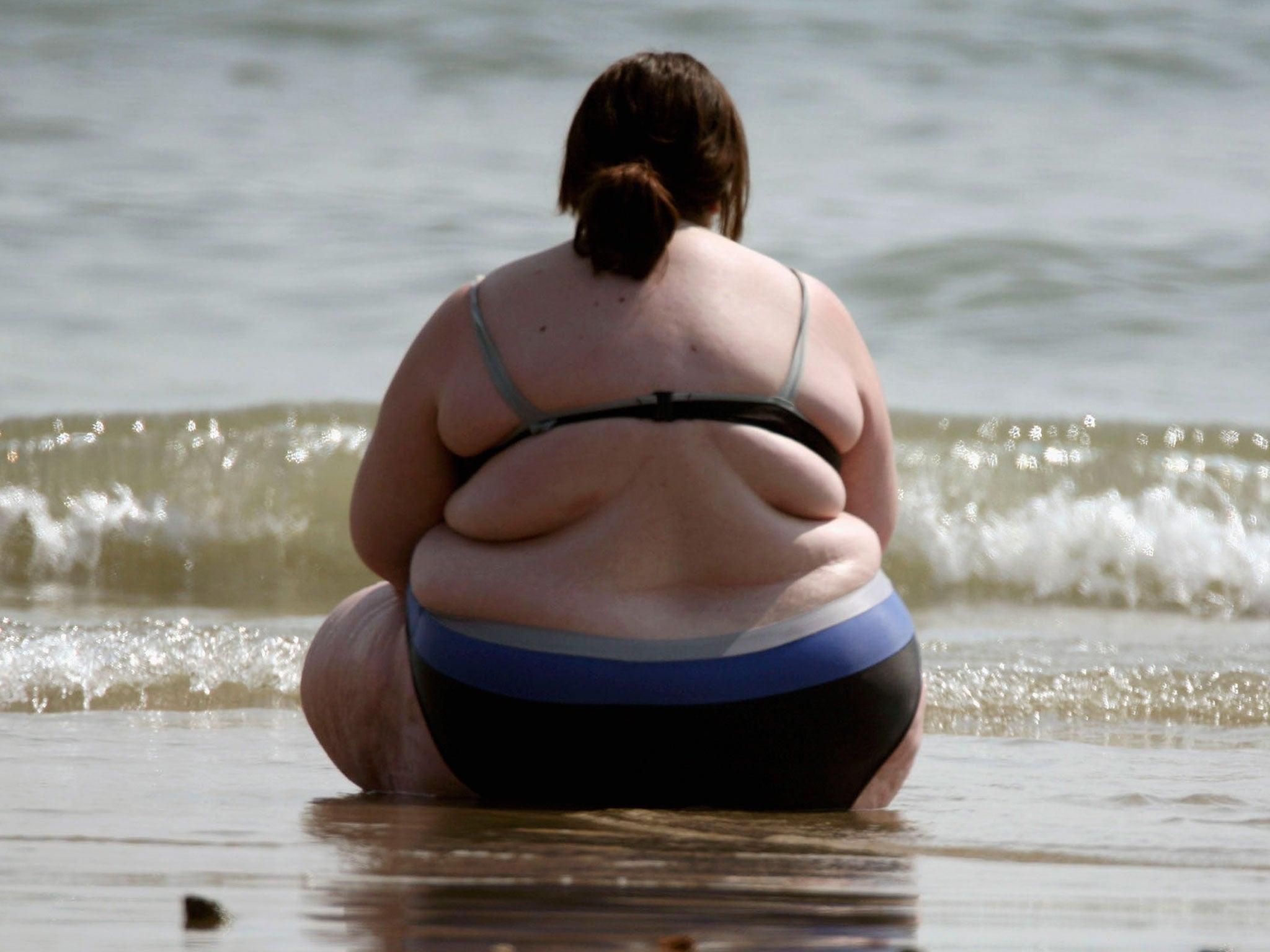Long-term weight-gain increases women's risk of breast cancer by a third, study suggests

Your support helps us to tell the story
From reproductive rights to climate change to Big Tech, The Independent is on the ground when the story is developing. Whether it's investigating the financials of Elon Musk's pro-Trump PAC or producing our latest documentary, 'The A Word', which shines a light on the American women fighting for reproductive rights, we know how important it is to parse out the facts from the messaging.
At such a critical moment in US history, we need reporters on the ground. Your donation allows us to keep sending journalists to speak to both sides of the story.
The Independent is trusted by Americans across the entire political spectrum. And unlike many other quality news outlets, we choose not to lock Americans out of our reporting and analysis with paywalls. We believe quality journalism should be available to everyone, paid for by those who can afford it.
Your support makes all the difference.Going up a skirt size every 10 years between the age of 20 and 64 increases a woman’s risk of breast cancer later in life by 33 per cent, a new study has shown.
Weight gain is already known to be a risk factor for many cancers, but researchers from University College London’s Department of Women’s Cancer said that a thickening waist appeared to be particularly harmful.
Their findings are based on responses from 93,000 women over-50, who gave their current skirt size, and what their skirt size had been in their 20s, as well as detailed information on other factors which can influence cancer risk, such as reproductive health and family history.
After taking account of other factors, increases in skirt size emerged as the strongest predictor of cancer risk, according to the study, which is published in the online journal BMJ Open today.
Going up one skirt size every 10 years was associated with a 33 per cent greater risk of getting cancer after the menopause and going up two skirt sizes in the same timescales carried a 77 per cent greater risk.
Out of 93,000 women who took part in the five-year study, 1,090 developed breast cancer – an absolute risk of just over one per cent.
The link between weight gain and breast cancer is believed to be due to the female sex hormones oestrogen and progesterone. Although these hormones occur naturally in the body, higher levels can encourage breast cancers to grow, and extra fat is known to boost levels of oestrogen.
Why weight gain around the waist appears to be a particular risk is not fully understood, but experts said that focusing on skirt size could be a more useful way for women to monitor their weight gain and cancer risk, as opposed to the usual body mass index (BMI) measurement, which is often not well understood.
Simon Vincent, assistant director of research at the charity Breakthrough Breast Cancer said that as many as 40 per cent of breast cancers could be prevented by changes to lifestyle such as taking more exercise and maintaining a healthy weight.
“This study highlights an easy way to monitor your weight gain over time. Women are more likely to remember their skirt size when they were younger than their BMI,” he said.
An expanding waistline has been linked to a higher risk of other cancers, including those of the pancreas, lining of the womb and the ovaries.
A higher BMI after the menopause is known to increase breast cancer risk, but our understanding of how weight gain at a younger age could influence risk is still developing.
In women over 50, between eight and nine in every hundred who have a BMI of 22.5 to 24.9 – the upper range of a healthy weight – will develop breast cancer.
However, in those with a BMI of 30 – which is obese – 11 or 12 in every 100 will develop breast cancer. BMI is worked out by dividing your weight in kilograms by your height in metres, and dividing the answer by your height again.
Breast cancer is the most common cancer in the UK – one in eight women will be affected in their lifetime. In the UK each year, around 55,000 people are diagnosed with the disease, and around 12,000 die of breast cancer each year.
Join our commenting forum
Join thought-provoking conversations, follow other Independent readers and see their replies
Comments